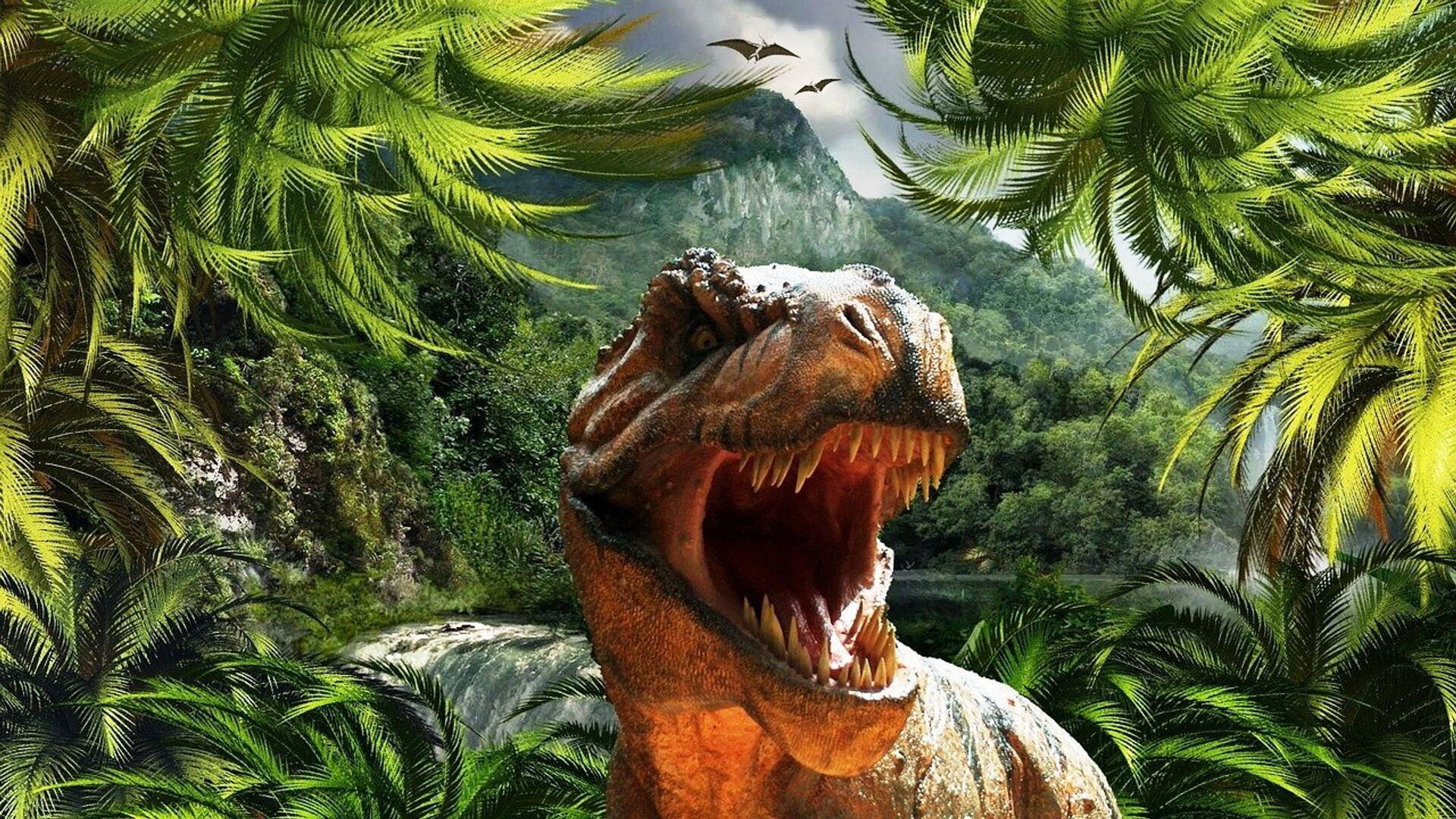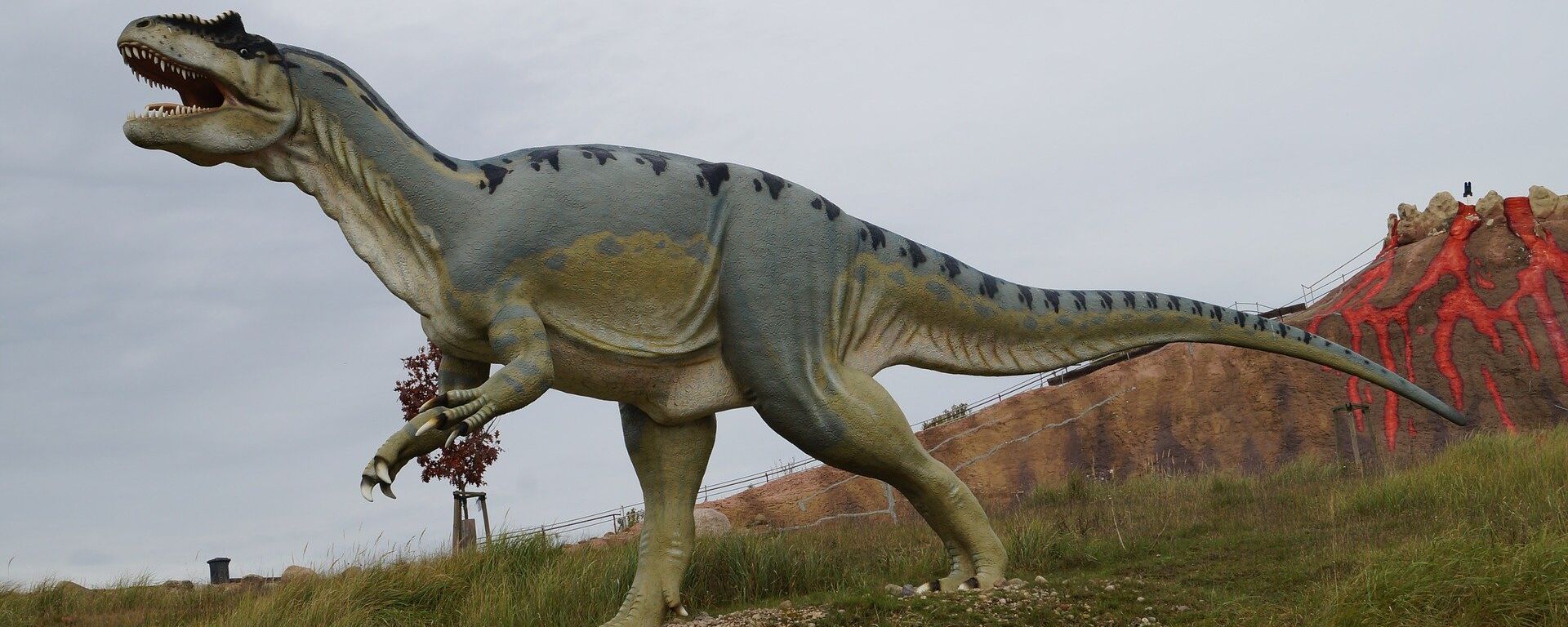https://sputnikglobe.com/20240727/t-rex-may-have-been-70-bigger-than-previously-believed-1119528866.html
T-Rex May Have Been 70% Bigger Than Previously Believed
T-Rex May Have Been 70% Bigger Than Previously Believed
Sputnik International
According to a new study, the king of dinosaurs may have been 70% heavier and 25% longer than previously thought.
2024-07-27T04:08+0000
2024-07-27T04:08+0000
2024-07-27T04:08+0000
beyond politics
canada
ontario
earth
ottawa
dinosaurs
dinosaur
paleontology
paleontologists
https://cdn1.img.sputnikglobe.com/img/107211/56/1072115639_0:0:1280:720_1920x0_80_0_0_9430eb9e7cbaa1e91de1f698074fc6b0.jpg
According to a new study, the king of dinosaurs may have been 70% heavier and 25% longer than previously thought.Paleontologists from the Canadian Museum of Nature in Ottawa, Ontario, said the carnivorous T-Rex could have weighed up to 33,000 pounds (15,000 kilograms), which would make it 35% heavier than an average school bus.In an effort to determine how big the dinosaur could get, scientists first examined the fossil record, which shows that a total of about 2.5 billion T-Rex once lived on Earth. But just 32 adult fossils have ever been found.The largest T-Rex on record is a specimen named “Scotty”, which weighed an estimated 19,555 lbs (8,870 kg) when it was alive. But the largest T-Rex “would have been about 70% bigger” than Scotty, said study co-author Jordan Mallon, a research scientist and head of palaeobiology at the Canadian Museum of Nature.“It's fun to think about a 15 tonne T-Rex, but the implications are also interesting from a bio-mechanical or ecological perspective," he said.
https://sputnikglobe.com/20220402/size-matters-bold-new-theory-explains-why-t-rexs-arms-were-so-small-1094428871.html
canada
ontario
earth
Sputnik International
feedback@sputniknews.com
+74956456601
MIA „Rossiya Segodnya“
2024
News
en_EN
Sputnik International
feedback@sputniknews.com
+74956456601
MIA „Rossiya Segodnya“
Sputnik International
feedback@sputniknews.com
+74956456601
MIA „Rossiya Segodnya“
t-rex size, t-rex bigger, t-rex 70% larger, t-rex size study, t-rex study ontario
t-rex size, t-rex bigger, t-rex 70% larger, t-rex size study, t-rex study ontario
T-Rex May Have Been 70% Bigger Than Previously Believed
A team of researchers took into consideration factors including population size, growth rate, lifespan, and the incomplete nature of the fossil record.
According to a new study, the king of dinosaurs may have been 70% heavier and 25% longer than previously thought.
Paleontologists from the Canadian Museum of Nature in Ottawa, Ontario, said the carnivorous T-Rex could have weighed up to 33,000 pounds (15,000 kilograms), which would make it 35% heavier than an average school bus.
In an effort to determine how big the dinosaur could get, scientists first examined the fossil record, which shows that a total of about 2.5 billion T-Rex once lived on Earth. But just 32 adult fossils have ever been found.
The largest T-Rex on record is a specimen named “
Scotty”, which weighed an estimated 19,555 lbs (8,870 kg) when it was alive. But the largest T-Rex “would have been about 70% bigger” than Scotty, said study co-author Jordan Mallon, a research scientist and head of palaeobiology at the Canadian Museum of Nature.
“Our study suggests that, for big fossil animals like T-Rex, we really have no idea from the fossil record about the absolute sizes they might have reached,” said Mallon, whose team also took into consideration other factors including population size, growth rate, lifespan, and the incomplete nature of the fossil record.
“It's fun to think about a 15 tonne T-Rex, but the implications are also interesting from a bio-mechanical or ecological perspective," he said.




